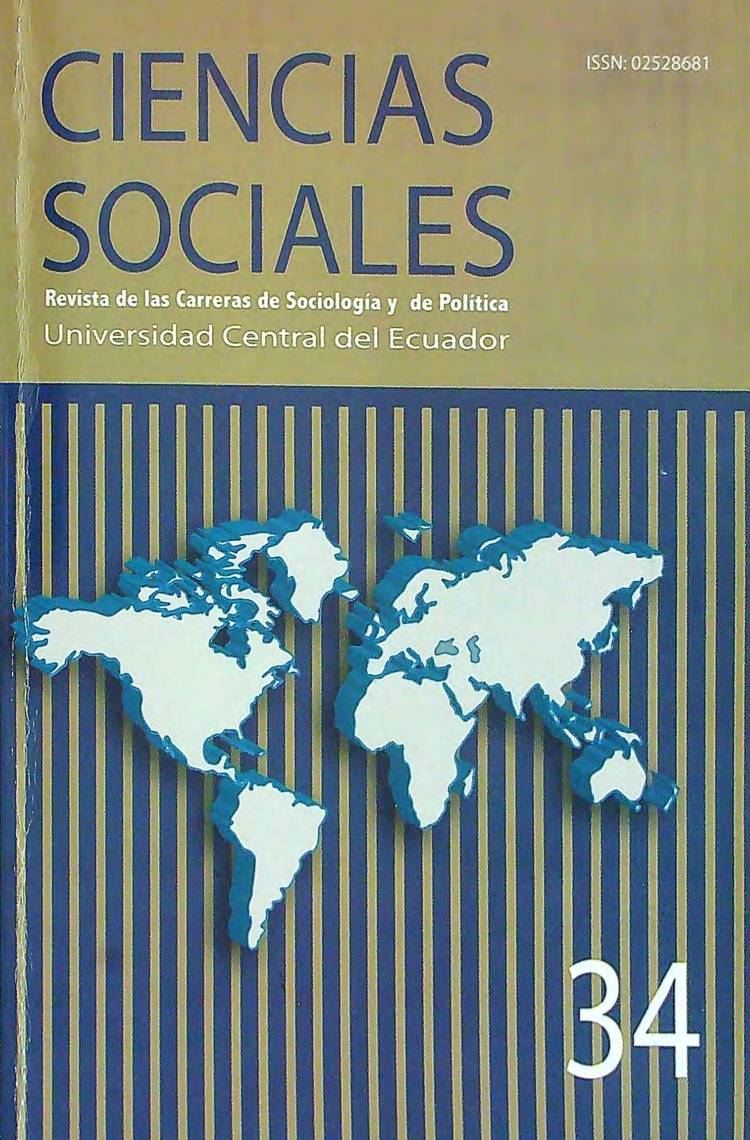Proyecto de integración regional emancipador o proceso de regeneración capitalista
Keywords:
Emerging economies, BRICS, UNASUR, Neo brazilian imperialismAbstract
After the ancient world order crisis, the failure of an unipolar world
project has been confirmed by the appearance of emerging economies and
new regional blocks. A special importance has had the BRICS and the Sotuh
America integration since UNASUR, which pretends, in function of political
unity, a Free Commerce Zone (ZLC) enlarged.
The integration has favored not only the commerce, but also the
employment. However, it has multiple problems. One of them is the asymmetries
between big countries like Brazil or Argentina and the little ones.
Therefore, in the "Mercosur", the majority of regional exportations, in particular of manufactures, come from the first ones. At the same time, the economic stability of the region to the worldwide crisis, has had like a support the massive exportations of commodities, especially of food, not processed mining and oil. This situation has contributed the re- primarization of local economies, while it has erased the possibility of new productive perspectives.
Brazil has played a decisive role in MERCOSUR, UNASUR and in the economic and politic Latin American sovereign and its security. In that way, the resurrection of the projects of the old IIRSA and the increasing role of the Social and Economic Development National Bank of Brazil (BNDES), make glimpse the validity of a neo Brazilian imperialism. Brazil encourages the internationalization of the private capital and the
Brazilian investments in the countries of the regions in arder to create cornmercial flows and assume a more important role in the world market. At the same time, the Brazilian government reinforces the penetration of their enterprises with the objective they act as regional multinationals.
Furthermore, Brazil has designed a defense strategy that converts it in the South American military base wich increasing sale of weapons to the other Latin American councries and a great superior warlike.
Downloads
References
•Acosta, Alberto y Machado, Decio (2012). Movimientos comprometidos con la vida: ambientalismos y con~ictos actuales en
América Latina. Revista OSAL Nº 32 (Observatorio Social de América Latina). México DF.
Banco Mundial (2012). La situación del mercado laboral detrás de la transformación de América Latina. http://siteresources.worldbank.org/LACINSPANISHEXT/Resources/empleo LAC.pdf.
Bauman, Zygmunt (2001 ). Dentro la globalizzazione. Le conseguenze su/le persone. Segunda Edición, Editori Laterza, Roma-Bari.
Botto, Mercedes (2004). La integración regional en América Latina. Una alternativa para el crecimiento http://historia.ihnca.edu.ni/ccss/dmdocuments/Bibliografia/CCSS2008/tema2/reco/REGION.PDF
Bouzas R. y Fanelli JM. (2003). MERCO SUR: Integración y crecimiento. Altamira y Fundación OSDE. Buenos Aíres.
Caetano, Gerardo (Coord) (2011). MERCOSUR 20 años. CEFIR. Montevideo.
CEPAL (2011). La economía de América Latina y el Caribe en 2010-2011. http://wwweclac.org/publicaciones/xml/1/43991/ParteIdelEstydio.pdf
Cienfuegos, Manuel y Sanahuja, José Antonio (Eds) (2009). Una región en construcción. UNA SUR y la integración en América del Sur. Fundación CIDOB. Barcelona.
Chomsky, Noam (2007). El nuevo orden mundial (y el viejo). Editorial Crítica. Barcelona.
Fukuyama, Francis ( 1994). El fin de la Historia y el último hombre. Planeta. Madrid.
Gobmann, David Michael y Quiroga, Yesko. Clima, energía y crecimiento en Brasil: en búsqueda de una convivencia pacífica. Fundación Friedrich Ebert Stiftung. Policy Paper 24. Río de Janeiro, 2012.
Hobsbawm, Eric J. (1998). "Biblioteca E J. Hobsbawm de Historia Contemporánea, Tomo 4, Historia del siglo XX". Crítica, Grijalbo Mondadori. Buenos Aíres.
Hobsbawm, Eric ( 1999). La era de la revolución. Editorial Crítica (Grijalbo Mondadori SA). Buenos Aires.
Downloads
Published
How to Cite
Issue
Section
License

This work is licensed under a Creative Commons Attribution-NonCommercial 4.0 International License.
Política de acceso abierto
La revista Ciencias Sociales adhiere al modelo Acceso Abierto en el que los contenidos de las publicaciones científicas se encuentran disponibles a texto completo libre y gratuito en Internet, sin embargos temporales, y cuyos costos de producción editorial no son transferidos a los/las autores/as.
En ese sentido, no existe costo alguno para los/as autores/as en el envío o durante el proceso editorial, defendiendo el derecho a la información con equidad e iguales oportunidades de acceso.
Licencia y derechos de autor/a
Los autores conservan todos los derechos de publicación del artículo y conceden a la Revista Ciencias Sociales una licencia no exclusiva, intrasferible y sin regalías por duración ilimitada para su reproducción, distribución y comunicación pública a nivel mundial bajo una Licencia Creative Commons Atribución 4.0 Internacional (CC BY NC 4.0)


